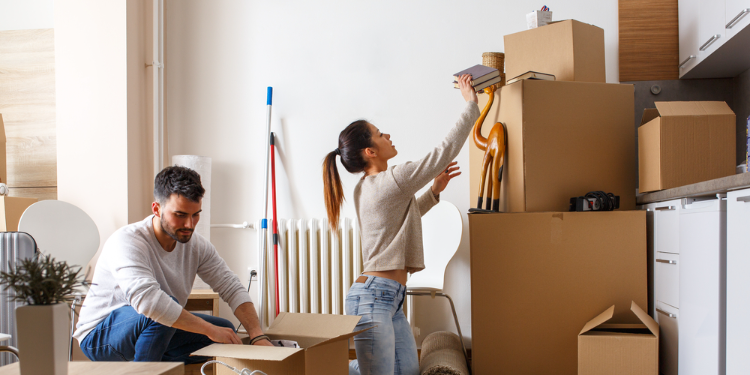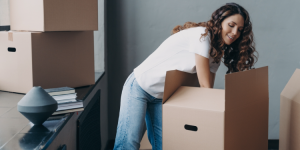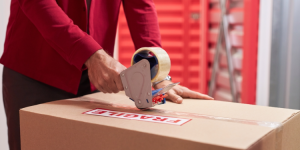
Moving abroad, just like many great adventures, also brings great responsibility. You need to organise your stay in the new place based on your needs, and those of your fellow travellers if you are moving with a partner or with family. Departing is not easy as it means leaving behind your friends, your culture and some of your dear objects. Therefore, it is very important to decide what to take and leave for your new life abroad.
Should you bring or not? It is hard to differentiate which things you really need. Moving during a pandemic makes things even trickier, as transportation and borders may be temporarily blocked. For this reason, it is best to make a list of things you (and your family) absolutely cannot live without and see if it is possible for that list to be made shorter. Try to cut on heavy, bulky objects that will require organising a van for (unless they're essential). Before moving and bringing your stuff with you, consider whether you have the necessary space to store them. Check the possibilities to move them within the city you plan to live in. It all depends on your future home place, and if there is any chance to move more times, consider that you will always have to think about the logistics around them.
In some cases, bringing some objects with you can have more than practical, but rather an emotional impact which can be important. Moving with a family, for example, means planning ahead, as it can be challenging to create a home welcoming and comfortable enough for your children to appropriate. Being a parent means thinking about more than the simplistic aspect of things, and if bringing your child's bed means that they will be able to sleep better, it is ok to organise moving it. Consider asking landlords for the possibility to do a virtual tour of the apartment for the first meeting. It might give you a better idea of the place and even spare you unnecessary contact when you don't want it.
Cultural adaptation is not an easy task, and sometimes being surrounded by your home objects may ease the stress that comes with it. In addition, some things are just difficult to find. Maybe you want to take your favourite rice cooker, your good quality cleaning appliances, or even your TV. It all depends on your connection, but objects, while somewhat unimportant, can change our perception of the environment around us and help us avoid the so-called “relocation depression”.
If shipping is less convenient than replacing the items that you have, you should just consider buying new ones. Consider that sometimes it is easier to just order and use them in the time you need, and maybe even sell them again before you leave. Many countries like Germany have rental options for apartments without appliances more often, and sometimes the previous tenant sells the furniture to the future one. You can always consider getting second-hand appliances or selling yours afterwards. In addition, it is important to consider the landlord rules, as well as the overall conditions. Check if you need a humidifier, an air conditioner, or any particular appliance that you already have. But remember, bring stuff because you need them, not because they are valuable, as moving might mean also damaging them.
Clothes are easily replaceable, and you should consider the temperatures in the place you move in. If you come from a cooler country to a warm one, for example, bringing jackets, no matter how dear they are to you, might only add to the baggage that you have. Of course, clothes sometimes have sentimental value. However, try to be practical. Making space for new things in your life is a good thing, and maybe new ones will mean a new adventure. Consider storing the old clothes, selling them, giving them to your friends or donating.
Computers, gadgets, and music equipment are important objects that are generally good to bring, as many companies have adopted the working from home option. Be careful with their transport and consider doing a backup before the trip, just in case you lose some important data. Consider that electrical plugs are different in some countries and that you might need an adapter. Remember, however, that some gadgets won't last forever, and it is better to discard them with time.
Documents and paperwork are crucial. Try to take as many certificates as you may need with you and plan in advance to obtain them in your country before you move. With the shifting of travel rules, you never know when it might be difficult to travel back and take them when you need them the most. Don't forget to get your legal documents (and plan all the stamps while in your home country) and your medical records, which may be necessary in Covid times and hard to get once you move out.
Medicine and vitamins are now more important than ever. While some basic supplements are available all over the world, stacking up on medical supplies cannot hurt. Consider that some countries don't have the same products (pills for headache, muscle balms), and in many, it is more complicated to get some medicines before you get a prescription. Consult with your doctor in your home country, and prepare beforehand. Don't forget to always check the label and their expiration date as well.
When planning to move, it is best to start making a list very early on and to discuss with your family about their needs. Do you have a car and plan to bring it? Evaluate if it is big enough and in good conditions and how much of the transport can you effectuate with it. Bringing your car with you means having more flexibility in case flights get cancelled, as well as safer travel than by plane. In addition, if you have more to bring, check as early as possible for shipping companies and ask them for quotations. These might depend on the time of the year and the current regulations, so it is better to be well prepared in order to avoid the stress of last-minute organisation.
Being an expat means always having to bring your house with you, and by that limit its size, but that's how the world becomes your home, and through this mindset, both moving abroad or returning home will be easier.



















